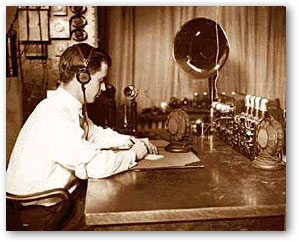As a nation we have access to so many different types of media, as a result of this many forms may get put to one side. One interesting part of this module for me was convergence, how year on year medias are coming together and producing something brand new. Radio is sometimes seen as a dying media, and many believe that it will not survive among the crowded media market. Radio out of all forms of media is considered to be one of the oldest yet most powerful forms, would it have come this far however without converging with a ll other media formats, who knows. As a radio student i obviously would argue no, it opens the minds eye and encourages imagination, there is something quintessentially personal about turning on the radio rather that staring mindlessly at a screen. Although looking at the statistics from RAJAR you can see that radio listening is on the rise year on year. Media forms are personal to all of us we sometimes represent ourselves by what station we tune in to, what television shows we watch or the papers we read. i would argue that radio is the most personal of all media; David Lloyd claims that a radio station defines a person’s identity audiences proudly say they are a listener of a certain show or station, ‘I am yet to hear anyone say proudly I’m a ITV listener, the specific radio relationship is a strong one.’ (Lloyd, 2015, p8.)
ll other media formats, who knows. As a radio student i obviously would argue no, it opens the minds eye and encourages imagination, there is something quintessentially personal about turning on the radio rather that staring mindlessly at a screen. Although looking at the statistics from RAJAR you can see that radio listening is on the rise year on year. Media forms are personal to all of us we sometimes represent ourselves by what station we tune in to, what television shows we watch or the papers we read. i would argue that radio is the most personal of all media; David Lloyd claims that a radio station defines a person’s identity audiences proudly say they are a listener of a certain show or station, ‘I am yet to hear anyone say proudly I’m a ITV listener, the specific radio relationship is a strong one.’ (Lloyd, 2015, p8.)

In 2016 radio covers all areas of the media, integrating with sites such as YouTube as well as the use of webcams becoming used more and more, along with that radio has large fan bases on social media posting photos and videos. The other main stage of convergence within radio was allowing listeners to tune in digitally useing their phones and laptops. The most exciting thing about convergence is we don’t know what to expect within the future the possibilities are endless.In years to come which form of media will die out and would they all still be around today if it weren’t for convergence?
- Lloyd, D (2015). How to make great radio. London: Biteback Publishing
- (2016).Quarterly summary figures. Available: http://www.rajar.co.uk/docs/2015_12/2015_Q4_Quarterly_Summary_Figures. Last accessed 02/03/2016.





